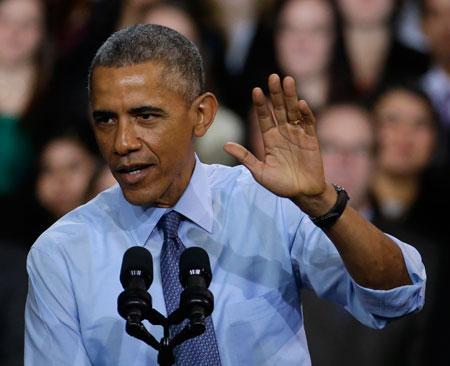You are here
Ehud Barak’s Iran bombshell could shake up Israeli politics
By AP - Aug 23,2015 - Last updated at Aug 23,2015
OCCUPIED JERUSALEM — Former Defence Minister Ehud Barak's comments that Israel came close to ordering an attack on Iran's nuclear facilities, but was thwarted by military men and cowardly politicians could shake up Israeli politics.
The leaked interview, in which Barak also described Prime Minister Benjamin Netanyahu as indecisive and obsessively pessimistic, was the talk of the town Sunday in an Israel obsessed about Iran. But beyond the hand-wringing, the always calculating Barak may have been focused on the future, perhaps for a final run at the country's leadership.
Also a former prime minister, Barak enjoys respect as the last leader of the moderate Labor Party to win an election, defeating Netanyahu in 1999. But he also is seen by analysts as having squandered his opportunity, lasting just two years in a term that cemented his reputation as brilliant but arrogant, and prone to overcomplicated analysis and nonstop machinations.
Barak later returned to politics, serving as defence minister from 2007 to 2013, when he was aligned with a re-elected Netanyahu on the dangers of a nuclear-armed Iran. He left politics as the Labor Party was weak and torn between factions. Now 73, Barak may running out of chances for another comeback.
Barak's interview, leaked Friday to Israeli Channel 2 television coincide with the release of a new biography about him, immediately thrust him back in the limelight.
"I imagine he would like to return to politics," veteran commentator Rina Mazliach told the privately owned broadcaster. Barak wants "to return to the Israeli consciousness".
In the recordings, Barak addressed one of the country's deepest secrets — whether Israel really was prepared to take military action against Iran's nuclear facilities.
For years, both he and Netanyahu issued veiled threats to attack if the world did not take action. Those threats, while often dismissed by commentators as bluster, were widely seen as a key factor in rallying international sanctions against Iran.
Barak told his interviewer that both he and Netanyahu favoured an attack in 2010, but the military chief of staff at the time, Gabi Ashkenazi, said Israel did not have the operational capability.
"You can't go to the Cabinet when the chief of staff will go and say 'Excuse me, I told you no,'" Barak said.
The following year, he said two influential Cabinet ministers had second thoughts and scuttled an attack. Then, in 2012, a joint military exercise with the US and a planned visit by then-US Defence Secretary Leon Panetta got in the way, he said.
Channel 2 said Barak unsuccessfully tried to prevent it from airing the interview, but that the military censor's office permitted it. There was no comment Sunday from Barak, Netanyahu or Ashkenazi, the former military chief.
The Cabinet ministers singled out by Barak — Yuval Steinitz and Defence Minister Moshe Yaalon — also declined to comment.
Avigdor Lieberman, then-Israel's foreign minister, appeared to support Barak's version in an interview with Channel 2. "If a prime minister cannot pass through his Cabinet a decision that he wanted, probably there is a problem," Lieberman said Sunday.
Danny Dor, one of the authors of the new book, said Barak knew he was being recorded and that there was never any promise not to publish them. And few have seemed to question that Barak knew what he was doing in giving the interview.
"What is certain is that there is a motive. Some hidden intent," wrote commentator Sima Kadmon in the Yediot Ahronot daily newspaper.
Barak may be intent on repairing his tarnished image and claiming a place in history. But the comments also come as Israel's dovish left desperately searches for a leader. Like other Labor figures, Barak — much more than Netanyahu — would prioritise disengaging from the West Bank and its millions of Palestinians chafing under Israeli occupation.
Isaac Herzog, a mild-mannered lawyer who lost to Netanyahu in Israel's March election that pollsters said was up for grabs, is sure to face a leadership crisis in the coming months.
Centrist Israelis are searching for a leader who can give Netanyahu a fight, mainly over the Palestinians but also the country's move toward conservatism and religion.
The seeming front-runner to replace Herzog is Ashkenazi, the former military chief singled out by Barak as blocking the attack on Iran.
Ashkenazi has been caught up in a scandal surrounding the appointment of his successor in 2010. At the time, Barak accused his army chief of improperly interfering in the appointment process.
But prosecutors recently determined there was not enough evidence to indict, preparing the way for what is expected to be a dramatic entrance into politics. Herzog already has voiced hope that Ashkenazi joins the Labor Party.
Barak and Ashkenazi remain bitter enemies and analysts say Barak's comments now may be timed to trip up his old foe.
Barak "wants to remind people where he was, what he did, how important he was, how rational he was", said Reuven Hazan, a political scientist at Hebrew University in Jerusalem. "When Ashkenazi starts doing the political lecture circuit, Barak wants to be able to create and raise as many obstacles as possible."
Related Articles
President Barack Obama will not meet with Prime Minister Benjamin Netanyahu when the Israeli leader travels to Washington in March, the White House said Thursday, one day after being caught off-guard by Republicans' invitation for Netanyahu to address a joint meeting of Congress.
WASHINGTON — Secretary of State Antony Blinken called Friday on Israel to ensure "equal" treatment of the Palestinians as the new US adminis
OCCUPIED JERUSALEM — Israel will ramp up its lobbying of the US Congress to try to hinder the nuclear agreement struck with Iran on Tuesday
















